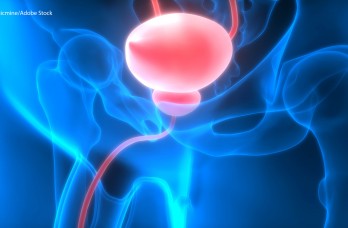CRP 103: ICI COLORECTAL CANCER PRECEPTORSHIP
Multidisciplinary management, standards of care, optimal diagnostics, therapies, and future perspectives in the care of Colon and Rectal Cancer patients in sub-Saharan Africa incorporating Biosimilars.
Eldoret, Kenya
Training Start Date: 28th June 2022- 4th August 2022
Training Duration: 6 weeks
Course Director: Prof. Fredrick Chite Asirwa MD
Consultant Physician. Medical Oncologist & Hematologist Executive
Director/CEO: International Cancer Institute (ICI)
P.O. Box 8088, Code 30100 Eldoret, Kenya
Email: director@intercancer.com Website: www.intercancer.com
Course Coordination: Dr. Kevin Makori
Head, Office of Education and Training
International Cancer Institute (ICI)
P.O. Box 8088, Code 30100 Eldoret, Kenya
Email: kevin.makori@intercancer.com Website: www.intercancer.com
This educational activity is provided independently by International Cancer Institute (ICI) through an educational grant from Pfizer
Accreditation of this course is by KMPDC, KPPB, NCK, and COC
ICI Education & Training Mission Statement
The ICI Preceptorship Program Mission is to measurably contribute to cancer patients’ safety and health outcomes and to support practice improvement by providing CME/CPD activities that enhance the ability of physicians and other healthcare team members to deliver quality and optimal healthcare services.
Purpose
The purpose of the ICI Preceptorship Program is to develop educational activities that clearly link the needs of the learner/participants with the planning process, format, and delivery of each activity, resulting in high-quality continuing medical education/continued Professional Development opportunities that will increase the knowledge, competence, and performance of health-care providers.
Content Areas
The ICI Preceptorship Program activities include practical, evidence-based, best clinical practice information for a broad variety of common oncology and hematology conditions, innovations in primary and specialty patient care in NCDs, new procedural training, and specialty fora. The appropriate content for each course is determined based on the results of a practice gap analysis relative to the target audience’s scope of practice, as well as the identified expected outcomes. Content is free of commercial bias.
General Target Audience: ICI Preceptorship/CME/CPD activities focus on the needs of generalist and specialist physicians and other multidisciplinary healthcare team members at ICI-affiliated cancer centers nationally and in sub-Saharan Africa as appropriate.
Type of Activities Provided by ICI
In order to accomplish our educational goals, ICI CME uses a range of activity formats based on the content and desired results of the activity. Current offerings include live and video conferenced activities, live regularly scheduled series, internet CME activities, enduring materials, and hands-on skills workshops. ICI also jointly sponsors activities with regional specialty societies, non-profit educational organizations, and government agencies when mutually desired goals and outcomes are best achieved by such relationships.
Expected Results of the Preceptorship Program
ICI Preceptorship/CME/CPD is committed to assessing the impact and effectiveness of its CME/CPD Program. ICI courses are designed to: increase knowledge of new treatments, diagnostic tools, and procedures; improve compliance with the specific evidence-based standard of care protocols; improve competence, performance, and/or patient outcomes; and promote efficient use of resources. We employ assessment methods to evaluate the extent to which our activities result in changes in knowledge, competence, and performance. CME activities in conjunction with quality improvement projects have measurable outcomes to report. An emphasis during the planning process is placed on intended learning and desired change in knowledge, competence, and performance. The ICI Education and Training Office works in collaboration with other departments/offices of the International Cancer Institute and its partners who are involved and interested in quality improvement processes and patient safety.
Target Audience
The primary target audience for this course comprises the multidisciplinary clinical cancer care team members including, but not limited to medical, surgical, and radiation oncologists; urologists; other health care professionals (internists, primary care physicians, pathologists, physicians-in-training, urology nurses, oncology nurses, nurse practitioners, pharmacists, physician assistants and nurse practitioners) involved and/or interested in the therapeutic management of patients with prostate cancer.
Statement of Need
New developments in the treatment of colorectal cancer (CRC) are often not widely disseminated, especially in sub-Saharan Africa, resulting in patients not receiving the best or most up-to-date care. Health care providers need current information on all factors related to CRC treatment, including screening, diagnosing, surgical and non-surgical strategies, and overall management of patients with colorectal cancer. Successful CRC treatment requires complex strategies and it may be difficult for clinicians to select from the various options available for diagnosis and treatment. Opportunities to discuss cases and compare treatment plans with colleagues are necessary for physicians to optimize their care plans through multidisciplinary tumor boards. ICI continues to conduct at least two virtual multidisciplinary tumor boards weekly. This course will augment that educational activity.
LEARNING OBJECTIVES
At the end of this educational activity, participants should be able:
- To understand the Epidemiology of Colorectal Cancer (Global)
- Epidemiologic features of colorectal cancer in Sub-Saharan Africa vis-à-vis globally
- To understand colorectal cancer prevention and evidence-based screening guidelines
- Understand the indications for screening, the various screening modalities, their efficacy, and applicability to population-based screening in SSA with economic impact.
- Modifiable risk factors for colorectal cancer
- To learn the diagnostics, biological basis, prognostic factors, and characterization of colon and rectal cancers, understanding the different biological and pathological subtypes of colon and rectal cancer for the selection of appropriate treatment strategies
- Knowledge of the indications and diagnostic tools available for colon and rectal cancer (such as colonoscopy, endosonographic, and MRI) and their implications for therapies.
- Familiarize with the risk assessment of prognostic factors, especially the TNM staging system for colon and rectal cancer.
- To understand the role of Surgery in the management of colon and rectal cancer
- Indications, value, modalities, and limitations of surgery for colon and rectal cancer.
- Role of surgery in resectable liver and lung metastases.
- To understand that colon and rectal cancer in early stages are treated differently
- Discuss treatment options and recommendations for colon and rectal cancer in the early stages.
- Evaluate the role of neoadjuvant care, radiotherapy, and chemotherapy in rectal cancer
- Familiarize with the indications, value, and main side effects of radiotherapy and chemotherapy in the neoadjuvant setting and mitigation measures.
- To understand the essentials in the assessment and the value of multidisciplinary management of patients with
- Appreciate the principles of the multimodality approach in patients with limited or oligometastatic disease.
- Discuss the general management strategies in order to understand all the considerations on which treatment to use and which sequence to select for the multidisciplinary strategy.
- To understand the role of chemotherapy, monoclonal antibodies, and targeted therapy in the management of patients with advanced disease and standard of care
- Knowledge regarding the types of systemic therapies: chemotherapy and targeted therapy, their indications, and main side effects, including management of the major side effects.
- Understand the value of lines of treatment in case of disease progression and in the continuum of care.
- To be knowledgeable about the strengths of, and role of personalized medicine and the importance of offering individualized targeted therapies based on molecular findings such as K-Ras, N-Ras, or B-Raf mutations
- To be knowledgeable on colorectal cancer-related hereditary syndromes, the management of families with these, and implications for individual patients
- To understand the role of Palliative, supportive, and survivorship care in colorectal cancer management
- Understand the complications that derive from disease progression and those that are treatment-associated in the context of being familiar with supportive and palliative care settings.
- To discuss the role and integration of Biosimilars in Colorectal Cancer management
- Introduce the concept of biosimilars, and their comparison with biologics in terms of development, the regulatory pathway of approval, and pharmacovigilance.
- Discuss the role of biosimilars and their impact on access to treatment, cost-utility, and patient outcomes.
- Integrate shared decision-making practices to inform and engage patients on Biosimilars.
- Consider how the availability of Biosimilars will impact clinical practice in SSA.
- Appreciate the research priority areas in Colorectal cancer in SSA
- Explore the disparities in colorectal cancer management and the outcomes.
- Opportunities and the role of clinical trials in colorectal cancer management.
Disclosure of Conflicts of Interest
International Cancer Institute (ICI) requires instructors, planners, managers, and other individuals and their spouse/life partner who are in a position to control the content of this activity to disclose any real or apparent conflict of interest they may have as related to the content of this activity. All identified conflicts of interest are thoroughly vetted by ICI for fair balance, scientific objectivity of studies mentioned in the materials or used as the basis for content, and appropriateness of patient care recommendations.
The faculty must report any financial relationships or contractual relationships they or their spouse/life partner have with commercial interests related to the content of this continuing education activity.
Disclaimer
Participants have an implied responsibility to use the newly acquired information to enhance patient outcomes and their own professional development. The information presented in this activity is not meant to serve as a guideline for patient management. Any procedures, medications, or other courses of diagnosis or treatment discussed in this activity should not be used by clinicians without evaluation of patient conditions and possible contraindications on dangers in use, review of any applicable manufacturer’s product information, and comparison with recommendations of other authorities.
Disclosure of Unlabeled Use
This educational activity may contain a discussion of published and/or investigational uses of agents that are not indicated by the FDA. The planners of this activity do not recommend the use of any agent outside of the labeled indications.
The opinions expressed in the educational activity are those of the faculty and do not necessarily represent the views of the planners. Please refer to the official prescribing information for each product for discussion of approved indications, contraindications, and warnings.
Method of Participation and Request for Credit
To receive credit for this activity, participants must review the activity information including learning objectives and faculty/planner disclosures, and actively participate in the educational activity. Upon successfully completing the post-test with a score of 75% or better and the post-activity evaluation, your certificate will be made available immediately.
The Program
LECTURES/COURSEWORK
Orientation to the course (Prof. Chite Asirwa) Tuesday, 28th June 2022 3.30-4.00 PM EAT
- Epidemiology of colorectal cancer (Global) & Public Health perspectives in cancer control (Dr. Abdu Adem Yesufe) Tuesday, 28th June 2022 4.00-5.30 PM EAT
- Screening and diagnostic workup for colorectal cancer (Dr. Clifford Chacha) Thursday 30th June 2022 4.00-5.30 PM EAT
- Pharmacology of systemic therapies used in colorectal cancer, mechanisms of action, toxicities and their management (Dr. Winnie Wanjiku) Tuesday, 5th July 2022 00-5.30 PM EAT
- Role of Pathology in colorectal cancer management (Dr. Kibet Kibor) Thursday 7th July 2022 4.00-5.30 PM EAT
- Role of Surgery in the management of colon and rectal cancers (Dr. Jabulani Munalula) Tuesday, 12th July 2022 4.00-5.30 PM EAT
- Supportive, Palliative, and Survivorship care in Colon and Rectal Cancer Care (Dr. Zippy) Thursday, 14th July 2022 4.00-5.30 PM EAT
- Role of radiotherapy in the management of rectal cancer (Dr. Helena Musau) Tuesday 19th July 2022 4.00-5.30 PM EAT
- Personalized and targeted therapies in colorectal cancers & summary of recommendations: Standard of care protocols (Dr. Sitna Mwanzi) Thursday 21st July 2022 4.00-5.30 PM EAT
- Evaluation and Treatment approach to advanced colon and rectal cancers (Prof. Dinesh Pendharkar) Tuesday, 26th July 2022 4.00-5.30 PM EAT
- Hereditary syndromes associated with colorectal cancers, the management of families with these and implications for individual patients (Dr. Kevin Makori) Thursday, 28th July 2022 4.00-5.30 PM EAT
- Biosimilars in Colorectal Cancer Management (Dr. David Wata) Monday 1st August 2022 4.00-5.30 PM EAT
- Research priorities & Clinical Trial Opportunities in Colorectal Cancer in SSA (Prof. Chite Asirwa) Wednesday, 3rd August 2022 4.00-5.30 PM EAT
| Week 1 | Week 2 | Week 3 | Week 4 | Week 5 | Week 6 |
| 28th Jun | 5th July | 12th July | 19th July | 26th July | 1st Aug |
| Chite | Wanjiku | Jabulani | Musau | Dinesh | Wata |
| Yesufe | |||||
| Chacha | Kibet | Zippy | Sitna | Makori | Chite |
Participants should be willing to spend at least 4 hours per week on this online course over a period of 6 weeks. (Duration 32 hours). This program will start when the class is fully subscribed. The course cost is $200.00 for the entire course. There are few sponsorships available on a first-come basis for those who apply. Priority will be given to those working in cancer centers that have formal affiliations/Partnerships with the International Cancer Institute. Apply for sponsorship during the registration of the course
All those interested in registering for this course, please register your information on www.elearning.intercancer.com if you have any questions or queries please send an email to education@intercancer.com
For more information visit our website www.intercancer.com
International Cancer Institute (ICI) ©2022
Your Partner in Cancer Control in SSA
Course Reviews
No Reviews found for this course.






